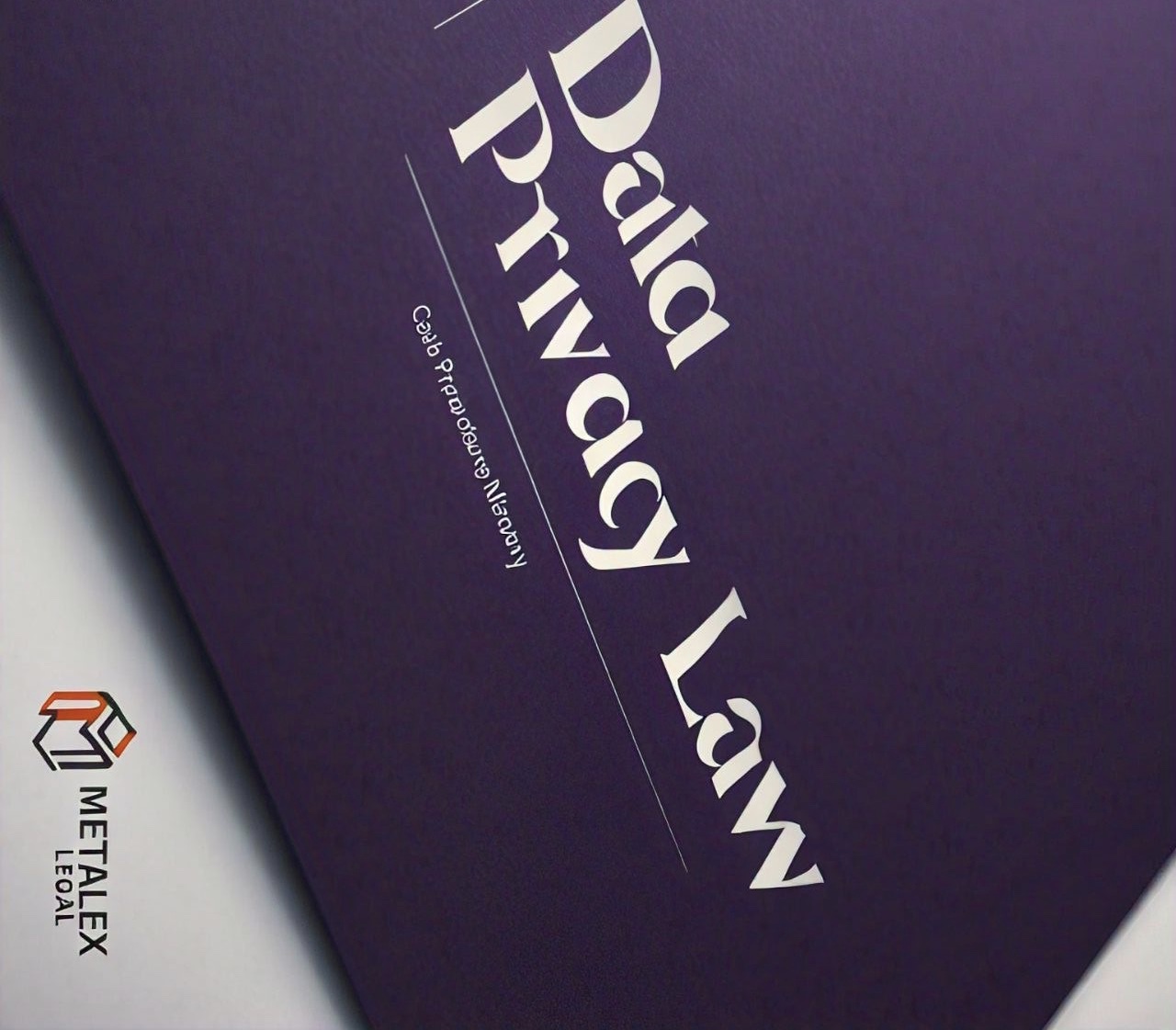
Understanding Data Privacy and Protection in Nigeria.
In the comment of one of the Leading Start up Law Firm in Nigeria, Metalex Legal, on the aspect of Data protection in Nigeria, Data was classified into two segment which is Personal Data and Non-Personal Data. Personal Data are information that can identify an Individual directly and Indirectly which include name, Address, Email,e.t.c while Non-Personal Data are information that can not be used to identify an Individual which include statistics of Visitors Clicks on a website and so on.
Now, What I’ve observed in Technology Law relating to the Aspect of Data privacy is that Issues of data protection and the level of technological development in a society usually go hand in hand, thus a discussion on data protection is better appreciated when situated within the context of Information technology penetration. We must however state that though advances in IT has increased the need for data protection, individuals‟ personal information are still exposed to risks when they are manually processed. That notwithstanding, computerised processing generates more risks than manual processing especially for developing countries, like Nigeria, without proper legal frameworks and that is a reason why it is the focal Point in this Publication.
As a matter of Fact, it is relevant to note that Globalization and e-commerce has resulted in the improvement of IT infrastructure in Nigeria. This fact is noticeable in the level of internet and telecommunication penetration in the country. Recent statistics show that the level of internet penetration in the country is around 40% with about 70 million internet users making Nigeria the eighth largest internet user in the world. This is a significant leap from about 10 years ago.
Fortunately, the government is making more efforts towards enhancing this infrastructure by improving its broadband facilities. Telecommunications have also drastically improved within the last few years with about 87% penetration.
The forgoing has led to an upsurge in data protection issues in the country. First, improved technological infrastructure has enhanced government surveillance activities with the capability to accumulate large amount of individuals‟ personal data which may sometimes be inaccurate. Similarly, various government institutions are improving their database facilities which raises questions regarding accountability and security safeguards of personal data in these databases.
Furthermore, private commercial entities, having recognised the importance of personal data in a globalised world, also engage in its indiscriminate accumulation for commercial gains. This fact is underscored in the recent activities of commercial banks,retails outlets and credit bureaus. The activities of these private and public entities pose a number of legal challenges for individuals. First, personal data is not collected fairly and lawfully in many cases. Second, questions arise regarding accountability and security safeguard of personal data collected. Improper accountability and safeguard of this data exposes individuals to identity thefts and cyber-criminals. Third, accuracy of personal data in possession of these entities becomes an issue and may lead to unfavourable decisions against individuals based on this data and ultimately, discrimination. These issues depict the crucial place of data protection in modern Nigeria and question the legal mechanism for the protection of personal data.
Nigeria’s Struggles with Data Privacy and Protection: its Challenges and Issues.
Nigeria, being a developing country, faces challenges in terms of relying on traditional methods to protect data and the lack of adequate legislation to safeguard the privacy of data users. These traditional methods refer to activities like filling paper forms, filing documents, and archiving them in physical cabinets. However, it is important to note that one of the weaknesses does not lie in the data storage technology itself, but rather in the resistance exhibited by individuals who have been accustomed to the traditional role of data storage. This resistance may stem from a desire to avoid becoming redundant in the face of cloud computing data storage systems. It is important to address these weaknesses to ensure effective data protection and privacy measures in Nigeria. Some of these issues are;
1. Data Hardware Faults and Failures:
Failures and the malfunctioning of data are no doubt fatal, as it is likely to cause loss of irretrievable data, which could be accidental or due to corruption or malfunctioning of the system. Hence, it is needless to mention here that failures of data hardware can amount to a loss of data. Amongst other things, data protection can also mean protection against hacking or corruption. Fortunately, data protection strategy has reported data can likely be recovered or retrieved almost immediately after the loss or corruption.
2. Lack of robust Data Protection Laws Online:
One of the significant issue faced by countries all over the globe on the subject of data protection, is not unknown, as various countries are yet to enact and enforce data and privacy protection legislation particularly in Nigeria.
As the world is beginning to wake up to the realization of the essence of data, there is a need for there to be matching rules to commemorate and then tackle issues arising from data. It is no longer news that several attempts have been made to replicate every single phase of the lots of human activities and that has made the use and retention of data, particularly on users on the social media platforms.
3. Risks Associated with Rapid Technological Development:
It is unnecessary to note that in this era we are in, technology has been, and is excelling at the task of placing the world at our fingertips, so much so that virtually all and any information can be garnered at the comfort of our zones. This is of course not without its flaws as abusers have leveraged the vulnerability of these systems to support their deeds. The threats on the improvement of information technology to further enhance the circulation and retention of data are of course a matter of concern as it extends its tentacles to lack of adequate laws to completely deal with extant matters on the data subject.
The Role of the National Information Technology Development Agency (NITDA) on Data privacy(Nigeria’s Path to its Compliance).
In order for Data Privacy to be effectual in its Administration in Nigeria, There is a need for promulgation of certain Act to aid this. The National Information Technology Development Agency was created under the NITDA Act of 2007 as the government agency responsible primarily for the planning, development and promotion of the use of information technology in Nigeria. Since the Data Protection Guidelines issued by the NITDA purports to be issued pursuant to the provisions of Sections 6, 17 and 18 of the Act, it may be necessary to look at the provisions albeit summarily. Section 6 of the Act deals with the functions of the agency and states that the agency shall among other things, develop guidelines for electronic governance and monitor the use of electronic data interchange and other forms of electronic communication transactions as an alternative to paper-based methods in government, commerce, education, the private and public sectors, labour, and other fields, where the use of electronic communication may improve the exchange of data and information. This is about the only paragraph in the whole of the section that has anything to say about data use or the protection thereof.
Moreover, The provision of section 17 & 18 of the Act provide for offences like failure to comply with the provisions of the Act, failure to make payment as appropriate, liability of officers and the need for the agency to collaborate with the Standards Organisation of Nigeria to enforce the guidelines and standards formulated by the agency.
Conclusion:
The quest to establish Data Privacy and Protection in Nigeria as an inviolable Human Rights in Nigeria necessitates a critical attention of the Legislative and Judicial arm of Government. Truly, They say, A journey of a thousand miles always begins with a step, however warped it may be, Data privacy and protection, as human rights, are increasingly becoming serious legal conundrum that must be given adequate legislative and judicial coverage, consideration and deliberation in Nigeria, otherwise, our recent resolve to do things differently will continue to be an elusive Illusion. Thank you.




